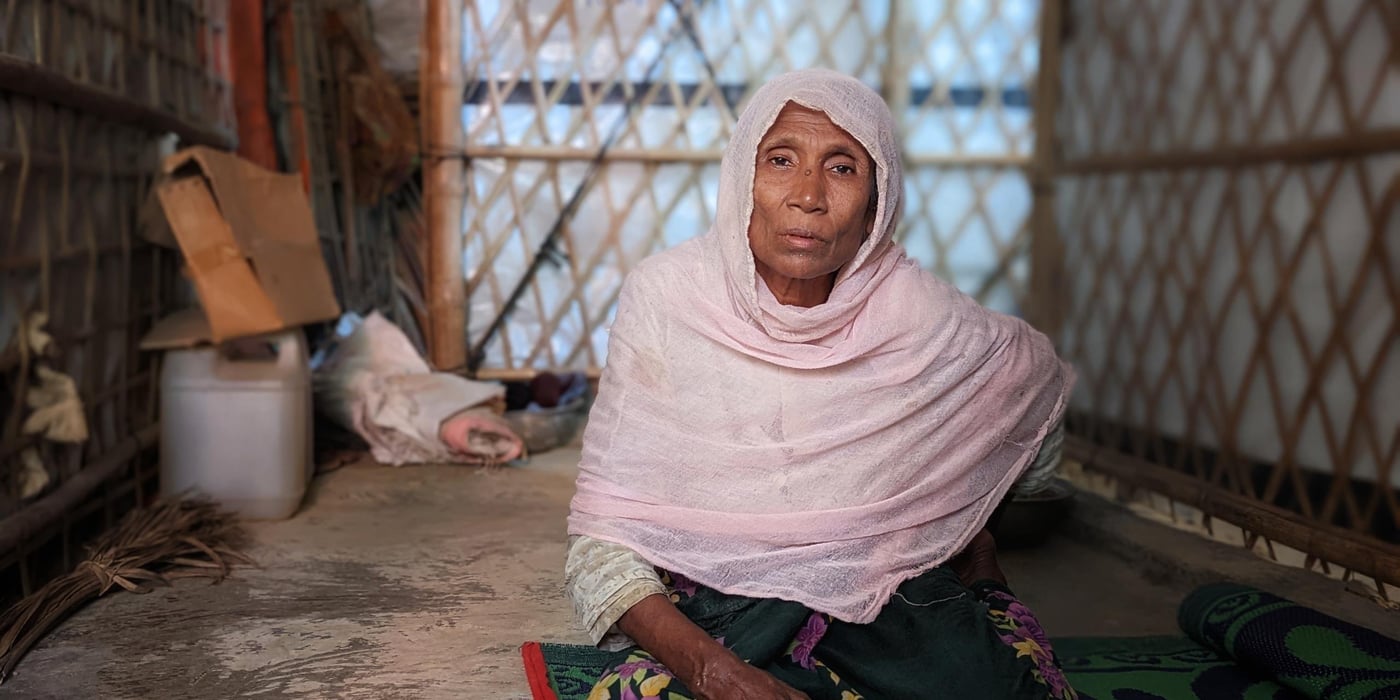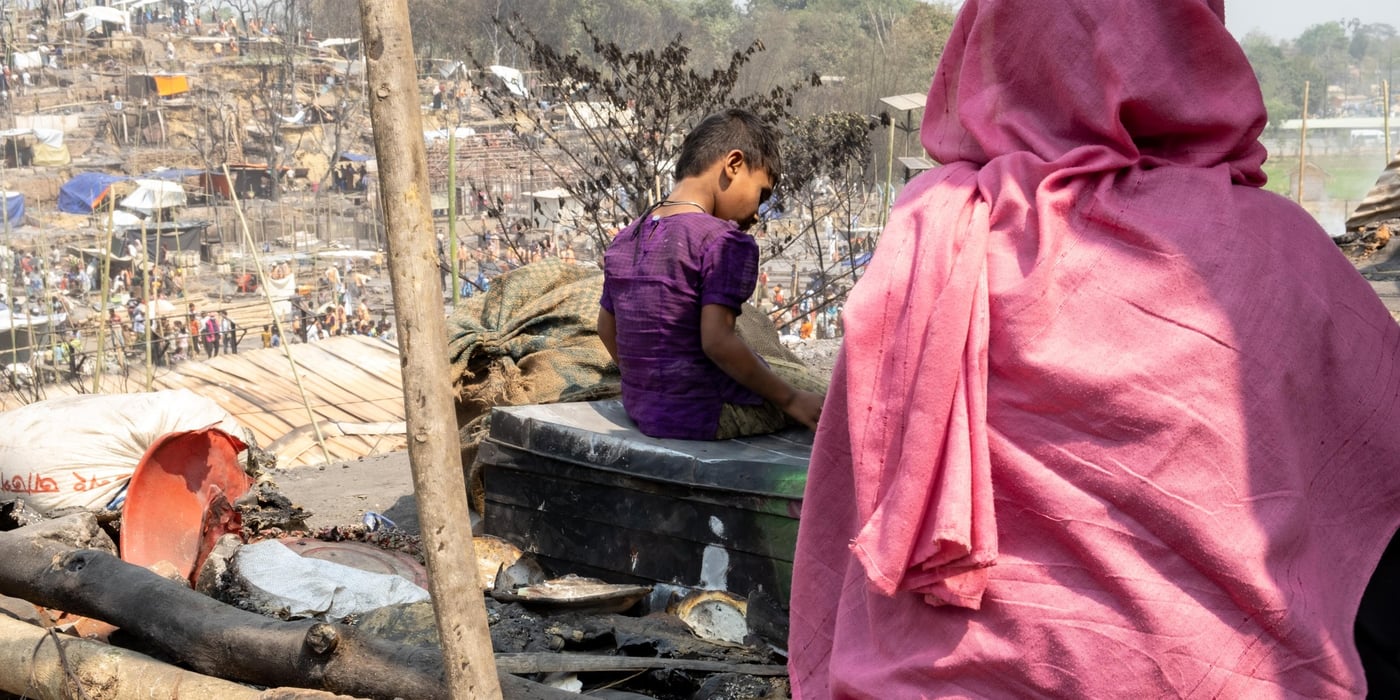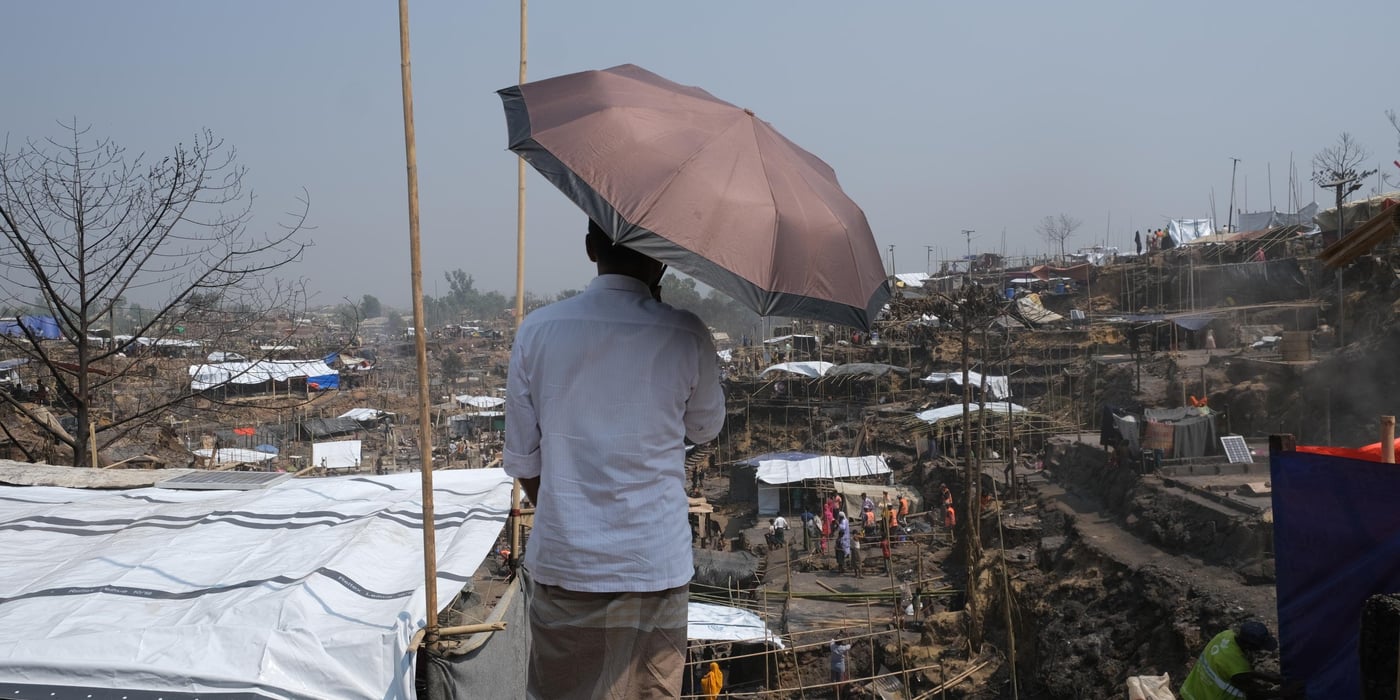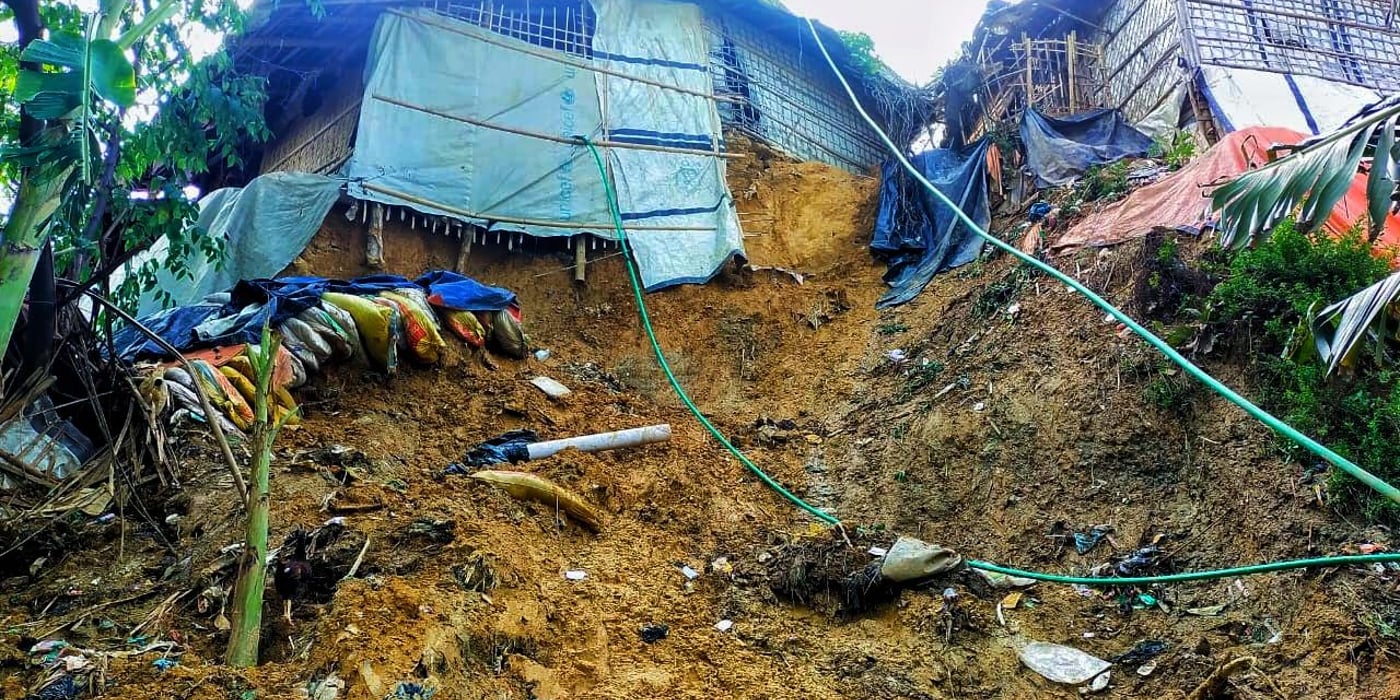
“Six long years after fleeing their homeland, Rohingya refugees in Bangladesh are still completely dependent on aid, living in temporary homes, and have little agency over their day-to-day life. Refugees have made their wishes clear: this must change.
“The last year has brought a slew of challenges including a cyclone, fires and landslides. It also brought a deteriorating security situation and two food ration cuts. Refugees cannot languish in these dire conditions forever. This situation is increasingly forcing more and more to make an impossible choice: stay in the camps and suffer the prospect of malnutrition and insecurity or make dangerous sea crossings in search of a chance for self-sufficiency and safety.
“Refugees are not permitted to work in Bangladesh, despite repeated requests from the population to be allowed to provide for themselves. Instead, the Rohingya are completely dependent on donor funding to survive. Yet, the current levels of available aid are barely enough to cover basic needs, with funding for the Rohingya crisis rapidly diminishing due to competing crises in the world. Eight months into the year the response has only secured less than a third of the required funding.
“Despite the worrying outlook for Rohingya, there are some positive signs on the horizon. Some small wins give cause for optimism: following the Covid-lockdowns, learning centres have been able to open again, and are providing some focus to children, allowing them to continue their education. Youth have also been able to attend skills-development courses to give them some direction and hope for the immediate future.
“While important and positive, these developments alone are not enough to address the longer-term challenges faced by refugees in Bangladesh. To give some semblance of improvement to life for the nearly one million refugees, there needs to be consistent commitments to meet funding shortfalls and refugees need to have the ability to pursue livelihoods and to work. To ease pressure on the camps there needs to be scaled-up and efficient resettlement of refugees to third countries. Rohingya groups in Bangladesh have been clear in this messaging and their voices must be heard.”
Notes to editors:
- Photographs are available for free use here.
- Read NRC's report: READY TO LEARN, EAGER TO EARN: A youth-led market and wellbeing assessment in Rohingya camps here.
- The Rohingya crisis joint appeal is currently 29.8% funded (OCHA).
For more information or to arrange an interview, please contact:
- NRC global media hotline: media@nrc.no, +47 905 62 329
- In Bangladesh: NRC Communications Officer, Sadia Rahman: sadia.rahman@nrc.no, +88 01798 638359




